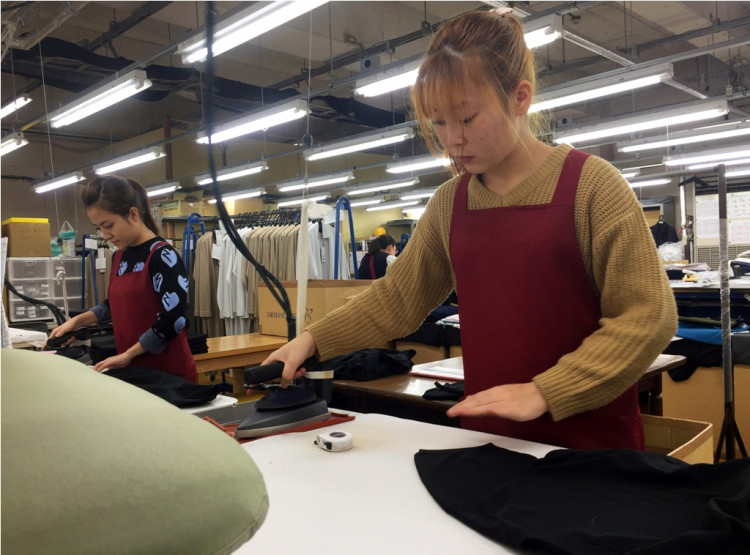President Donald Trump's sweeping new tariffs-topping out at 46% on Vietnamese imports-have triggered a sharp sell-off across the retail sector and cast fresh uncertainty over global supply chains, just as U.S. companies were regaining footing post-pandemic. The levies, announced Wednesday, include an across-the-board 10% duty starting April 5, with sharply higher rates for 60 countries including Vietnam, China, Indonesia, and the European Union taking effect April 9.
Retail giants with deep exposure to Vietnamese manufacturing-including Nike, Wayfair, and American Eagle-were among the hardest hit in after-hours trading. Vietnam, a popular alternative to China for production in the apparel, footwear, furniture, and toy industries, now faces the highest individual tariff under the new regime.
Nike, which sources about 25% of its footwear from Vietnam, saw its stock drop more than 6% after the announcement. "The comprehensiveness of the new tariff regime is more shocking," said Neil Saunders, managing director of GlobalData Retail. "Every company that imports is going to have to deal with higher costs that result from this new way of conducting trade."
The tariffs come on top of existing duties. Vietnam's 46% tariff is particularly severe, surpassing even China's 34% levy. When combined with the prior 20% duty on Chinese goods, the total effective tariff on Chinese imports reaches 54%.
Shares of VF Corporation, which owns The North Face, Vans, and Timberland, fell more than 8%. VF has 55% of its suppliers based in China and Vietnam, according to its most recent manufacturing disclosure. The company declined to comment due to an upcoming earnings report.
Deckers Brands, parent of Ugg and Hoka, saw its shares slide nearly 9%. It has 68 supply chain partners in Vietnam, second only to its 125 suppliers in China. Wayfair, whose CEO Niraj Shah noted in February the company had been diversifying outside China into Vietnam, saw its shares plunge 12%. The company stated it is "closely monitoring the evolving trade landscape."
The footwear industry is particularly exposed:
- Vietnam accounted for nearly one-third of U.S. footwear imports in 2023, according to the Footwear Distributors and Retailers of America.
- Steve Madden has already announced a plan to cut Chinese imports by 45% and shift production to Vietnam and other countries.
- VF, Deckers, and Funko all depend heavily on Vietnamese manufacturing and were impacted immediately in after-market trading.
Toymakers are bracing for increased costs. Hasbro, Mattel, Crayola, and SpinMaster rely on GFT Group's five manufacturing plants in Vietnam, which employ more than 15,000 workers. Funko CFO Yves LePendeven said in March the company would offset tariff-related costs through pricing adjustments and renegotiated factory contracts.
American Eagle CFO Michael Mathias said on the company's earnings call that "high-teens to 20%" of its production is based in both Vietnam and China. Shares of American Eagle dropped over 5% on Wednesday. CEO Jay Schottenstein cautioned investors: "I wouldn't be rushing. You go rush, where am I rushing to? I don't know where I'm rushing to."
Furniture manufacturers, too, are caught in the crossfire. Vietnam accounted for 26.5% of all U.S. furniture imports in 2023, according to the Home Furnishings Association. Combined with China's 29%, over half of America's furniture now comes from regions subject to steep tariffs.
Peter Baum, CFO and COO of Baum Essex, a licensee for brands including Nautica and Steve Madden, said the tariffs could be ruinous. "This is how you start a global depression. After 80 years and five generations Trump just put us out of business," Baum told CNBC.
Big-box chains like Walmart and Target are also affected. Target's chief commercial officer Rick Gomez said the company has tried to diversify its sourcing to places like Guatemala and Honduras, but those efforts may be insufficient under the new tariff structure. Walmart, which trades at a forward P/E ratio of 33.56, could see multiples contract further as margin pressure mounts, according to CFRA analyst Arun Sundaram.
The broader impact on consumers may take several months to materialize, but signs of strain are already emerging:
- Lululemon shares are down 26% year to date, with CEO Calvin McDonald citing inflation concerns and lower foot traffic.
- NRF forecasts 2025 retail sales growth between 2.5% and 3.7%, down from 3.6% in 2024.
- University of Michigan consumer sentiment index fell to its lowest level since November 2022.
Ernie Tedeschi, visiting fellow at Yale University, said food prices may reflect the new costs most quickly, while durable goods like electronics and cars will likely see price hikes by summer.
Companies like Costco, Amazon, and Walmart+ with subscription revenue may fare better in absorbing the tariffs. But for most retailers, especially those in apparel and hard goods, the path forward appears increasingly uncertain.






